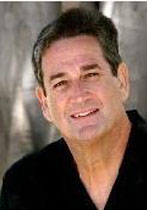By Rabbi Ben Kamin

ENCINITAS, California — John Fitzgerald Kennedy was born on May 29, 1917, as American “doughboys” were being deployed to Europe in the closing frames of World War I.
His gilded childhood and adolescence were shaped by his family-bred athleticism, the fervent paternalism of his father, Joseph P. Kennedy (the deeply-flawed US ambassador to the UK who would have appeased Hitler beyond any reasonable comprehension), and the future president’s own service in the Navy during World War II.
An amalgam of facts and legend established his heroism as a PT-boat skipper in the Pacific; he wrote books, augmented by ghost-writers that nonetheless established his keen sense of history, particularly his affection for England—where he spent a lot of time as a young man.
His predecessor as president, Gen. Dwight D. Eisenhower, actually did a lot more for the nascent civil rights movement (Brown v. Board of Education, 1954; federal intervention in the Little Rock segregation crisis, 1957) than JFK did—though Kennedy, of course, did not have anywhere near as much time to work on the issue.
Kennedy was spirited and bold in foreign policy and relatively indifferent to civil rights and he even frowned upon the 1963 March on Washington—fearing that it might cost him Southern support in the 1964 election he did not live to see.
But President Kennedy was imperially literate, funny, truly young, and he lifted our spirits. David Brinkley, the late and eminent anchor of NBC News, once told me: “I just liked Kennedy so damn much. He made Washington sparkle.” And Congressman Louis Stokes, an old friend from Cleveland, who chaired the House Select Committee on Assassinations, and who believes that there was more than one shooter in Dallas fifty years ago this Nov. 22, said to me one night: “It doesn’t matter who killed him. It matters how it killed us.”
After the decidedly disastrous invasion of the Bay of Pigs in 1961, which deeply embarrassed the new president and called his youth into account, he stood before the White House press corps and stated: “I am the chief executive officer in charge and the responsibility is mine.”
Taking responsibility for a mistake? Appealing to our better natures and displaying wit and charm in Washington? No wonder we will never stop looking for our beloved President Kennedy.
*
Rabbi Kamin is a freelance writer based in Encinitas, California. He may be contacted at ben.kamin@sdjewishworld.com
Yes, the “man on the moon” speech is a great speech—by a great man. JFK understood our constitution and, I think, believed in it. He must have realized that a Federal-Government moon program justified by “because they are hard…because that goal will serve to organize and measure the best of our energies and skills” would be blatantly unconstitutional. He understood that it was actually a national security program. It’s too bad he had to sell the idea to Americans with a phony rationale.
But that’s politics. And human nature.
Compare that to other big-ticket Government programs—Social Security, Federal Reserve, Education, Agriculture, Affordable Health Care. These had no constitutional justification. Then you can see the difference between presidents like Jefferson, Coolidge, and Kennedy and common politicians.
From Dan A. Pratte:
It is almost impossible to believe – like Elvis, he will never be old.
I do believe that we came of age during a very special time, and certainly the great speeches of the day are indicative: Kennedy’s Inaugural Address, King’s 1963 March on Washington, RFK’s impromptu Indianapolis address on the night of King’s death. But the one that stirs my soul above the others, is the great call to arms delivered in September 1962 at Rice University stadium. JFK — ‘we will put a man on the moon and return him safely by the end of this decade’….’we choose to do these things, not because they are easy, but because they are hard…because that goal will serve to organize and measure the best of our energies and skills, because that challenge is one that we are willing to accept, one we are unwilling to postpone, and one which we intend to win” . And we did.
I open that one on YouTube from time to time, and, admittedly with a tear in my eye, yearn for those days, when America’s greatness was defined in these ways. And the World did too. And I wonder if such a leader can emerge, or are we too cynical.
Hey, but thanks for sharing, Ben!
From Joseph Jordan: Wow didn’t know .